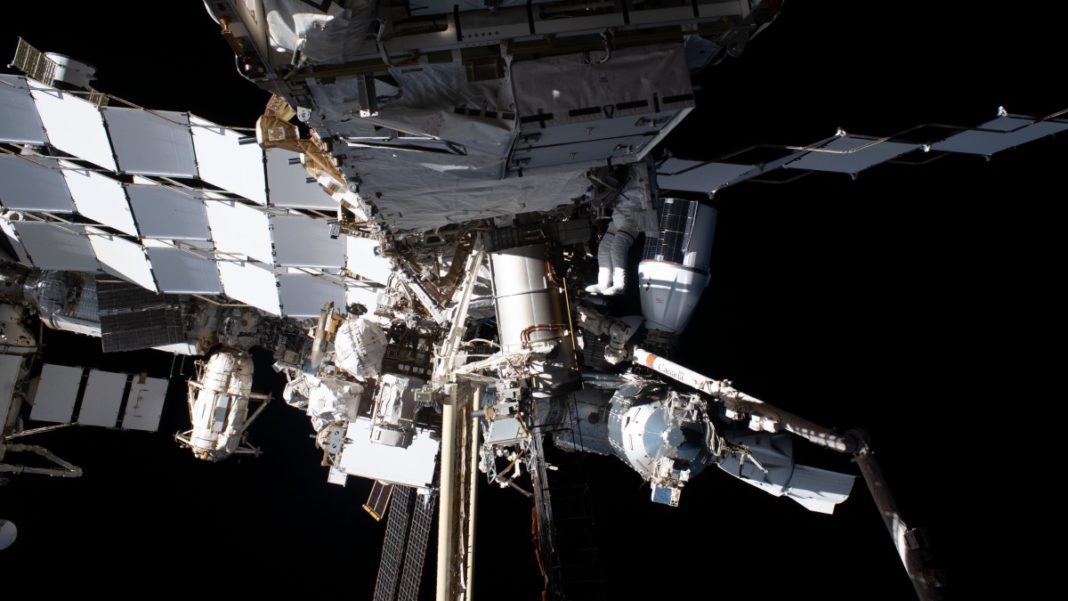UNITED STATES: Space station astronauts aboard the International Space Station (ISS) breathed a sigh of relief on Monday (Oct. 9) after a coolant leak was swiftly contained on the Russian Nauka Multipurpose Laboratory Module (MLM). NASA officials confirmed that the crew was “never in any danger.”
Toxic ammonia flakes were detected around 1 p.m. EDT (1700 GMT) on the MLM, triggering immediate action from NASA’s Mission Control in Houston. Astronaut Jasmin Moghbeli, on board the ISS, confirmed the backup radiator leak after conducting a visual assessment.
While it remains uncertain if the situation will necessitate a spacewalk by Roscosmos cosmonauts for repairs, NASA assured that there are no immediate impacts on crew safety or station operations. The primary radiator for Nauka remains operational, though the leak is under investigation, marking the latest in a series of incidents involving Russian ISS equipment.
Russia’s space agency, Roscosmos, echoed NASA’s assessment, emphasizing that the temperature within the MLM remains stable, and operations, experiments, and crew activities continue as scheduled.
The leak originated from the backup radiator initially assigned to the Russian Rassvet module and was delivered to the ISS via space shuttle mission STS-132 in 2010. In April 2023, a Roscosmos spacewalk relocated the functional radiator to Nauka.
As a precaution, NASA has instructed Expedition 70 ISS astronauts to close all shutters on the U.S. segment to prevent potential contamination.
Ammonia plays a crucial role in cooling the ISS systems, and managing waste heat produced on the station. The warmed ammonia’s excess heat is dissipated into space via radiators, like the one on Nauka, allowing for continuous cooling.
This incident is the latest in a series of coolant leaks involving Russian equipment. Analysts like Jonathan McDowell suggest a potential systemic issue given the recurrence of these incidents.
In December 2022, a leak on the Soyuz MS-22 spacecraft led to the cancellation of a scheduled Roscosmos spacewalk, highlighting the gravity of the situation. Roscosmos responded by deploying an empty replacement Soyuz, MS-23, and returning MS-22 to Earth for analysis.
Despite these challenges, the ISS is slated to remain operational until at least 2030, though Russia has currently committed only to 2028, amid ongoing tensions related to the conflict in Ukraine.
Also Read: Euclid Spacecraft Triumphs over Cosmic Hurdles, Poised to Illuminate the Dark Universe



